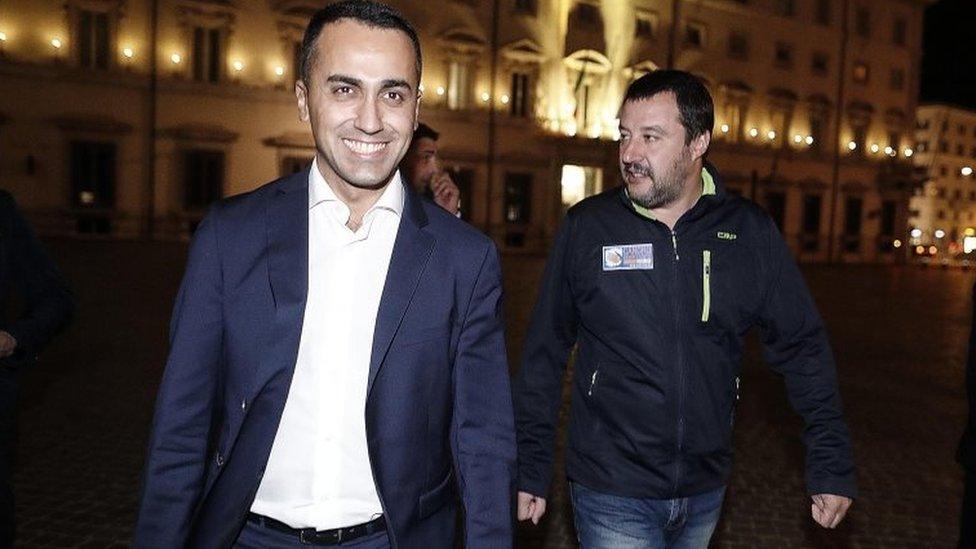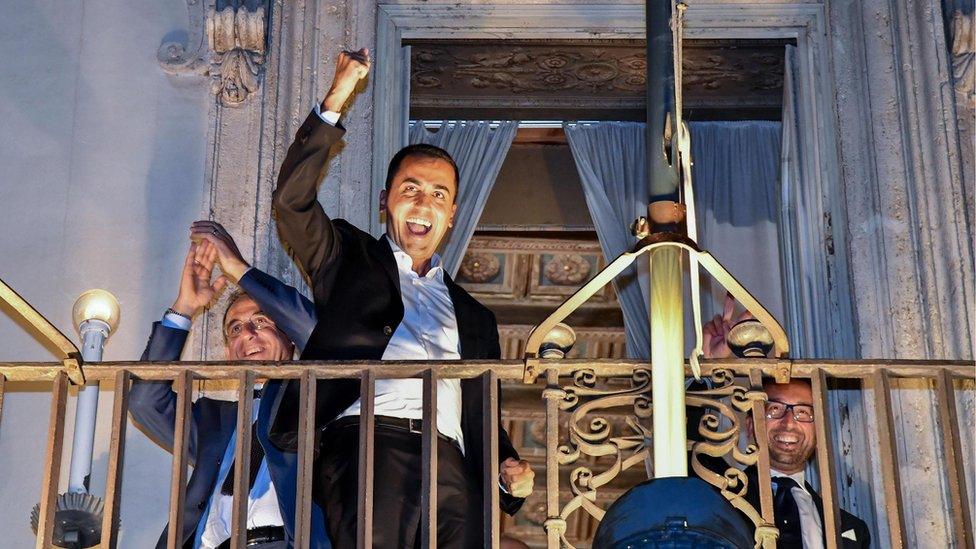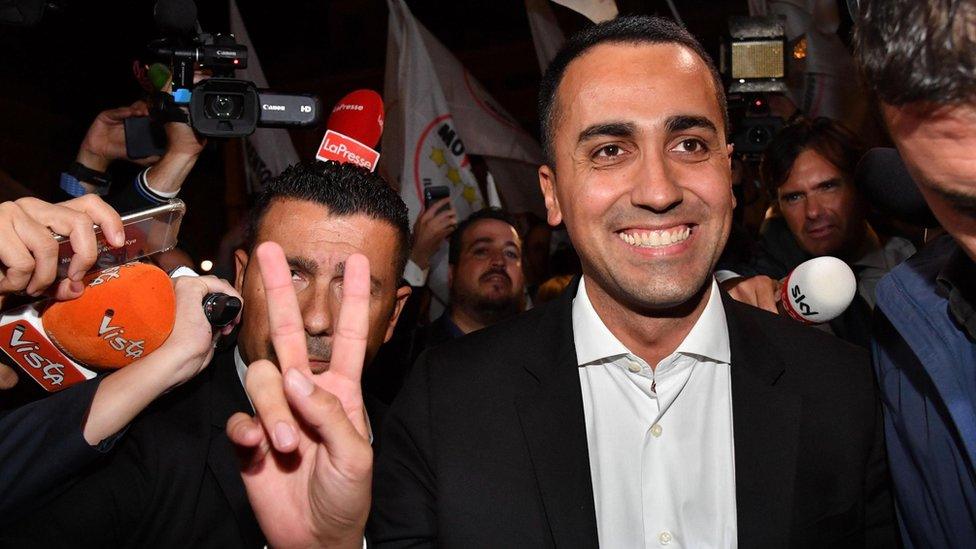Italy budget: Rome rejects European Commission demands
- Published

Italy's co-Deputy Prime Ministers Luigi Di Maio (left) and Matteo Salvini made defiant comments
The Italian government has defied the European Commission by sticking to its big-spending budget plan.
Finance Minister Giovanni Tria said it would keep to a deficit target of 2.4% and a growth forecast of 1.5%.
The Commission, worried by the impact of high spending on Italy's high levels of debt, had told Rome to revise the budget or face possible fines.
It had set Tuesday as a deadline to Italy's governing populist parties to respond to its objections.
The Commission's warning to Italy, the eurozone's third-biggest economy, is an unprecedented move with regard to an European Union member state.
It will now decide whether to begin disciplinary measures against the Rome government.
Italian government bond yields rose to a three-week high amid fears that its budget decision would raise borrowing costs. The Milan stock exchange fell 1% before recovering some of its losses.
Why does Italy want to spend more?
Italy's government, made up of the populist Five Star Movement and right-wing populist League, came to power vowing to "end poverty" with a minimum income for the unemployed, along with promises of tax cuts and scrapping extensions to the retirement age.
To fulfil its promises it trebled the previous government's deficit target of 0.8% of Italy's economic output.
In his letter to the Commission, Mr Tria reaffirmed Italy's commitment to maintain public finances, but insisted it would stick to a deficit target of 2.4% which he said was an "impassable limit".
He said Italy would aim to generate 1% of GDP by selling state assets with which it would pay back debt. However, it also faces considerable costs because of "exceptional events".

Damage from flooding in several areas of Italy will cost some 0.2% of economic output, Italy's finance minister predicts
In his letter he cited the cost of the collapse of the Morandi bridge in Genoa in August, which 43 people died; he also mentioned weeks of flooding and bad weather that caused damage in many areas of Italy in recent weeks.
The total cost of repairs would equal around 0.2% of GDP for the next three years.
Mr Salvini, who leads the League party, was quoted as telling Rai radio on Wednesday that the Commission had "got it wrong if they are even just thinking of imposing fines on the Italian people".
Luigi Di Maio of Five Star said: "We have the conviction that this is the budget needed for the country to get going again."
The government argues that servicing its debt of 131% of national output - second only to bailed-out Greece - would hurt Italians, who have still not recovered from the decade-old financial crisis.
Italy's economy is still smaller than it was in 2008. The governing coalition argues an increase in spending would kick-start growth.
How bad is Italy's debt?
Italy's debt level is described by the European Commission as a "major vulnerability" for its economy.
In July the EU recommended that it should be cut by 0.6% of GDP in 2019, but the Commission believes the current budget will increase Italy's structural deficit by 0.8% of GDP.
In his letter to the Commission, Mr Tria was upbeat about the country's growth prospects, predicting that Italy's debt would fall over the next three years to reach 126% of GDP in 2021.
On Tuesday the International Monetary Fund challenged his predicted growth assumptions of 1.5% for 2019 and 1.6% for 2020, with its own estimate of 1% for 2020.
"For the first time the Commission is obliged to request a euro area country to revise its draft budgetary plan but we see no alternative than to request the Italian authorities to do so," the European Commission Vice-President for the euro, Valdis Dombrovskis, said last month.
He pointed out that Italian taxpayers were having to spend as much servicing the national debt as on education.
Dutch Finance Minister Wopke Hoekstra said it was very disappointing that Italy had failed to change its budget. Austria said it would back the Commission if it stepped up its action against Italy with what is known as an Excessive Deficit Procedure (EDP).
German Chancellor Angela Merkel said on Tuesday that the EU wanted to reach out to Italy but that it had adopted budget rules "that we all now have in common".
- Published28 September 2018

- Published28 September 2018

- Published5 October 2018

- Published1 June 2018
